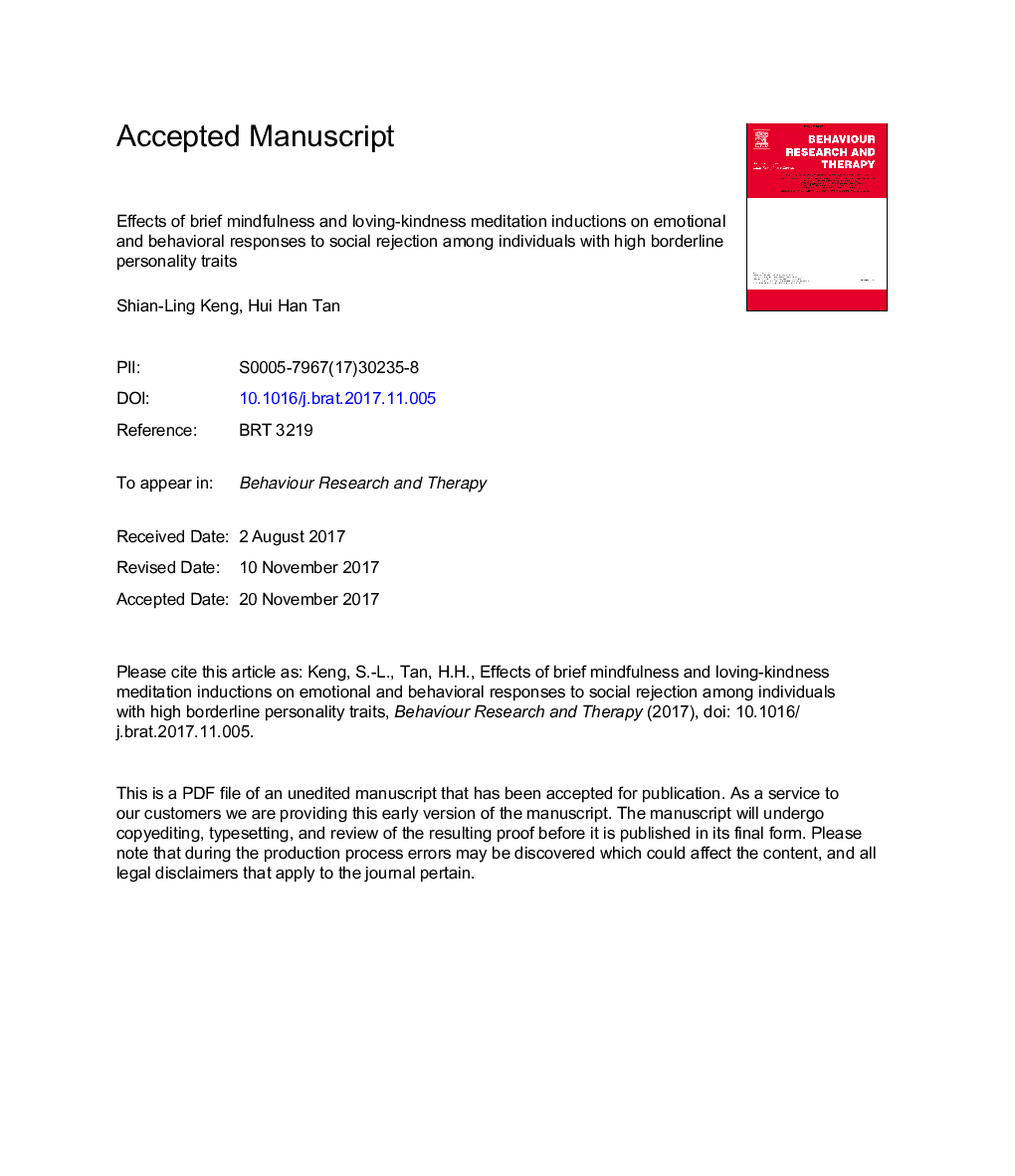| Article ID | Journal | Published Year | Pages | File Type |
|---|---|---|---|---|
| 7261927 | Behaviour Research and Therapy | 2018 | 41 Pages |
Abstract
Borderline personality disorder (BPD) is characterized by an enduring pattern of instability across affective, behavioral, cognitive, and interpersonal domains. Individuals with BPD are known to be particularly vulnerable to experiences of social rejection, but little work has examined strategies that may moderate their reactivity to social rejection. Using a laboratory experimental approach, this study investigated the effects of brief mindfulness and loving-kindness meditation (LKM) inductions on emotional and behavioral responses to social rejection in a sample of adults with high BPD traits. One hundred and eighteen participants were randomly assigned to receive 10Â min of mindful breathing practice, LKM, or a no-instruction control condition, prior to exposure to a social rejection manipulation. Participants rated their emotions and completed a competitive reaction time task, which provided a proxy measure of aggression. Compared to the control condition, the mindfulness group demonstrated significantly quicker recovery in negative affect and feelings of rejection after social rejection. The mindfulness group also reported significantly quicker recovery in negative affect compared to the LKM group. Whereas baseline trait mindfulness negatively predicted aggressive behaviors across all participants, groups did not differ in immediate emotional reactivity or aggressive behavior following social rejection. The findings suggest that mindfulness training may be a promising strategy in alleviating negative emotional effects of social rejection among individuals with high borderline personality traits, and highlight the limited utility of brief LKM practice in buffering the effects of social rejection.
Related Topics
Health Sciences
Medicine and Dentistry
Psychiatry and Mental Health
Authors
Shian-Ling Keng, Hui Han Tan,
